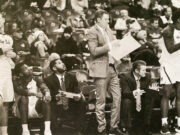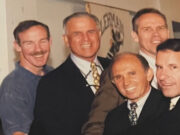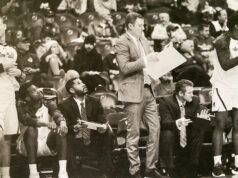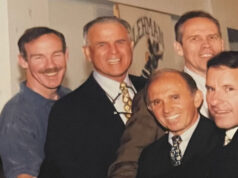By Paul Schienberg, PhD
Further exploring specific problems and resolutions designed to get athletes and coaches on the same frequency.
This article will address more communication blocks that can interfere with inner personal blocks (player in player and coach in coach) and interpersonal blocks (player to coach, player to player and coach to player) understandings and athletic performance. Please re-read The Basics in “Communication Blocks: I & II”, volume 3, Issue 7 and volume 4, Issue 1 before reading the list in this article (www.psychedonline.org/Article/Vol4Issue2/CommunicationBlocks.htm).
- A coach/player can send a “Be spontaneous!” paradox. This occurs when one person requests or demands something from another person that can only be given spontaneously – like trust, interest, acceptance, appreciation, desire, and respect. Should the second person try to comply, the first person may then say – “You’re just doing that because I asked you to, not because you really mean it.”
The solution to this block is mutual knowledge of this concept, mutual communication awareness and the second person asserting something like “You’re asking me to give you something that has to be spontaneous” and both people digging down to illuminate the underlying relationship needs that are causing this situation. - Generalizing can muffle or distort the current message and prevent effective problem solving. “You’re always insensitive and inconsiderate!” will probably be received differently than “I’m mad and frustrated because you’re 40 minutes late and I missed my team bus!” You always…”or “You never…” are deadly because they imply the receiver is 1 – down (disrespected) and invite him or her to feel guilty and defensive about many past events as well as the present one. Normal responses to this block are to flee, tune out, and/or counterattack (vs. listen empathetically and problem-solve).
- Preaching, moralizing, or advising someone with a problem (I’m just trying to help!”) can erode relationships if the “struggler” just needs to vent (be respectfully heard and accepted). These reactions in the receiver promote dependency, helplessness, and imply” I’m 1-up – I know how to fix your problem and, you don’t.” Sometimes this is true!Me/You
- Players and coaches not knowing the difference between win-win problem-solving and common (ineffective) alternatives like fighting, arguing, threatening, avoiding, blaming, explaining, preaching, moralizing, monologing, hinting, whining, numbing out, defocusing, enduring, imposing, submitting, pretending and assuming. When any of these occur try asking “Are we problem -solving now, or something else?
- Sarcastic, critical (vs. affectionate) name-calling erodes the receiver’s self-esteem and the odds for cooperative problem solving. “You’re stupid, lazy, spacey, nuts, weird, hopeless, a jerk ……..”etc. hurts! The non verbal version of this block is a player’s/coach’s look that conveys massive disapproval. Whose needs get met?
- Physical or emotional withdrawal is a powerful communication that may imply “You scare or overwhelm me”. In resolving this communication block, respectfully explore if the sender is unconsciously doing something that triggers withdrawal.
- Threats or demands suggest “My current needs are more important than yours!” They provoke hurt resentment, defiance, and everyone feeling badly about themselves and/or the exchange. The receiver has to use assertive metatalk when this happens – “I feel you’re making a demand (or a threat) now. When you do that, I feel resentful, anxious, and combative. I need you to make your point another way.”













